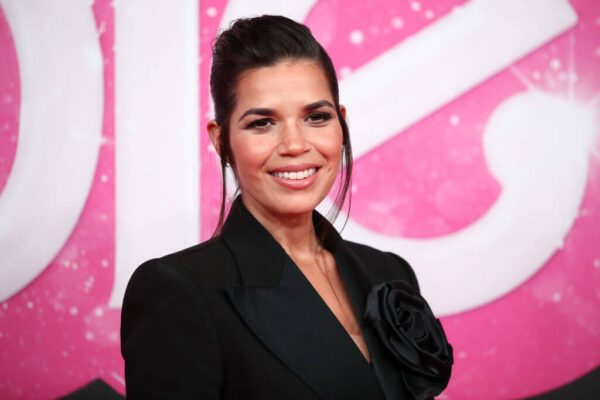America Ferrera Is a Trailblazer Whose ‘Barbie’ Oscar Nomination Is a Belated Token Nod to Her Brilliance
As hard-won as it is, America Ferrera’s rise to glory is the stuff of legend. She dared to dream an impossibility and turned it into reality with immense grit, grace, and grounding. It wasn’t overnight. In fact, it took her — a plump Honduran girl raised by a single, working-class mother — several stellar performances over 22 years to get the Academy to notice. All this attention has been long overdue, but the way it has turned out is far from ideal.
Nominating Ferrera in the Best Supporting Actress category for playing Gloria, the woman responsible for ruining Barbie’s pink, picturesque, perfect life in Barbieland in Greta Gerwig’s blockbuster feminist satire is a major victory for every person who has been rooting for her all these years. But the joy pales when you zoom out a little to consider how an actress of Ferrera’s caliber and credibility deserves more than a DEI sympathy nod.
America Ferrera attends the “Barbie” Celebration Party at Museum of Contemporary Art on June 30, 2023, in Sydney, Australia. (Photo: Don Arnold/WireImage)
Even though “Barbie” was one of the biggest films of last year, earning an unbelievable $1.4 billion and making a solid dent in the cultural zeitgeist, Ferrera’s character was only a small part of it. In a world full of Barbies and Kens, Gloria features only at the fringes, but Ferrera ensures that she leaves her mark. Her 137-second monologue that starts with “It’s impossible to be a woman” brilliantly captures the unfairness, the anger, and the ridiculousness of having to be one in a man’s world.
However, the 39-year-old actress, director, and producer has played meatier roles in a prolific career spanning over two decades. Notable turns that deserved more attention, audiences, and praise than they received. She was the smart, sincere Carmen in “The Sisterhood of the Travelling Pants” (2005, 2008), searching for love, acceptance, and herself, a teen finally coming into her own. She was the unforgettable, utterly chaotic but delightful Amy in NBC’s “Superstore” (2015-2021), on which she also served as one of the executive producers.
Then there’s her remarkable titular protagonist from the comedy-drama series “Ugly Betty” (2006–2010), a character that got her a Golden Globe and an Emmy (the first Latina to do so in the Outstanding Lead Actress in a Comedy Series category). However, in a singular career of many needle-pushing, boundary-blurring roles, the one that stands out the most, even after all these years, is her blistering feature film debut, “Real Women Have Curves” (2002).
In the Patricia Cardoso directorial, she plays Ana, an ambitious, driven 18-year-old Mexican-American fed up with societal expectations of how a woman should look like and be. She’s feisty but relatable, outspoken, unapologetic, and yet vulnerable. Widely considered an epochal film, it was fearless in its attack on conventional ideas around womanhood, winning big at the 2002 Sundance Film Festival and San Sebastian International Film Festival. It was also awarded the Humanitas Prize and the Imagen Award and given special recognition by the National Board of Review. But not one Oscar nomination. The Academy of Motion Picture Arts and Sciences overlooked it entirely.
Ferrera was only 18 when the film was released. Had she been white, she would not have just been nominated but also won most likely — so fierce is her performance in the film —and become one of the youngest actresses (all ethnicities included) to take the coveted golden trophy home. I can’t help but think of how Jennifer Lawrence made a big splash with her role in “Silver Linings Playbook” (2012). She didn’t just win an Oscar. It completely transformed her career, catapulting her to superstardom.
I wonder how different Ferrera’s trajectory would have been had the Academy been as mindful of diversity, equity, and inclusion then as it is today. This is essentially why her being nominated now hurts all the more. The Academy isn’t just terribly late in acknowledging a tour de force, but nominating her for a role much smaller than her capacity feels anti-climactic in an awards season full of meatier, denser performances.
Her other contenders are Danielle Brooks for “The Color Purple,” Da’Vine Joy Randolph for “The Holdovers,” and Jodie Foster for “Nyad.”

